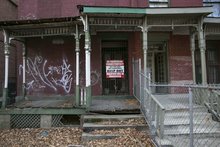0
Publication
Community:
Apr 11, 2019
Consistent with Executive Order 13853, “Establishing the White House Opportunity and Revitalization Council,” this document informs the public that HUD intends to maximize the beneficial impact of investment in Opportunity Zones. HUD is reviewing its existing policies, practices, planned actions, regulations, and guidance regarding HUD-administered programs and laws to identify actions HUD can take to encourage beneficial investment, both public and private, in urban and economically distressed communities, including qualified Opportunity Zones. HUD seeks input and recommendations from the public regarding potential agency actions.
Authored by: Department of Housing and Urban Development (HUD)
Topics: Community development, Legislation & Policy
 Shared by Housing Is
Shared by Housing Is
Housing Is posted a
on Apr 23, 2019
Department of Housing and Urban Development (HUD)
Consistent with Executive Order 13853, “Establishing the White House Opportunity and Revitalization Council,” this document informs the public that HUD intends to maximize the beneficial impact of investment in Opportunity Zones.
0
News Article
Community:
Apr 7, 2019
Puerto Rico was in financial distress and had crumbling infrastructure before Hurricane Maria, and many residents complain of government malfeasance that exacerbated the storm’s impact, echoing criticism from Washington. But Puerto Rican leaders say the delay to the Vieques hospital and thousands of other stalled projects is a reflection of unequal treatment from the White House and Congress, which last week failed to pass disaster relief legislation because of a dispute over how much money to send the island.
Authored by: Patricia Mazzei for The New York Times
Topics: Community development, Food insecurity, Funding, Legislation & Policy, Low-income, Nutrition, U.S. Territories
 Shared by Housing Is
Shared by Housing Is
Housing Is posted a
on Apr 15, 2019
Patricia Mazzei for The New York Times
Puerto Rico was in financial distress and had crumbling infrastructure before Hurricane Maria, and many residents complain of government malfeasance that exacerbated the storm’s impact, echoing criticism from Washington.
0
Report
Community:
Apr 8, 2019
While the program has changed very little since its inception, the need for the program has increased. In 1975, the number of program grantees stood at 594. Today, the number of grantees stands at 1,268 as more communities qualify to receive direct program allocations. Based on a CDBG Needs Survey conducted by the CDBG Coalition (and discussed later in this report), CDBG grantees have delayed and canceled projects and reduced or permanently eliminated programs because of a lack of CDBG funds. CDBG is an important investment tool for communities and neighborhoods, but program funding must increase to meet local need to ensure CDBG grantee communities are healthy, vibrant and thriving.
Authored by:
Topics: Community development, Funding, Health, Homelessness, Housing, Legislation & Policy, Low-income, Partnerships, Research, Safety, Seniors
 Shared by Housing Is
Shared by Housing Is
Housing Is posted a
on Apr 8, 2019
A report of the CDBG Coalition
While the program has changed very little since its inception, the need for the program has increased. In 1975, the number of program grantees stood at 594. Today, the number of grantees stands at 1,268 as more communities qualify to receive direct program allocations.
0
Interactive
Community:
We're creating the foundations of change. Together, we can provide more families with access to a safe place to live.
Authored by: Freddie Mac, Duty to Serve
Topics: Community development, Housing, Legislation & Policy
 Shared by Housing Is
Shared by Housing Is
Housing Is posted a
on Apr 8, 2019
Freddie Mac, Duty to Serve
We're creating the foundations of change. Together, we can provide more families with access to a safe place to live.
0
News Article
Community:
Feb 5, 2019
Building more affordable housing units in the metros that are centers of innovation will increase demand for the wares that fill houses, and increase productivity.
Authored by: Richard Floriday for City Lab
Topics: Asset building, Community development, Housing, Legislation & Policy, Research
 Shared by Housing Is
Shared by Housing Is
Housing Is posted a
on Apr 4, 2019
Richard Floriday for City Lab
Building more affordable housing units in the metros that are centers of innovation will increase demand for the wares that fill houses, and increase productivity.
0
News Article
Community:
Mar 31, 2019
Miami is projected to face anywhere from 1 to 3 feet of sea level rise by 2060, and as sea levels rise, higher ground inland has started to look more and more desirable. Much of that higher ground is in the city's poorest neighborhoods, like Liberty City and Little Haiti. The shifting real estate landscape is just one example of how, in Miami, the effects of global warming are not hypothetical predictions but realities of everyday life, prompting action by government, businesses and individuals alike. Across the region, developers are changing how they build, wealthy homeowners are reinforcing their properties, and in communities that are farther from the coast — places like Liberty City — residents are working to make sure they don't have to leave their homes.
Authored by: Ian Stewart and Lulu Garcia-Navarro for NPR
Topics: Community development, Housing, Legislation & Policy, Low-income, Racial inequalities, South
 Shared by Housing Is
Shared by Housing Is
Housing Is posted a
on Apr 4, 2019
Ian Stewart and Lulu Garcia-Navarro for NPR
Miami is projected to face anywhere from 1 to 3 feet of sea level rise by 2060, and as sea levels rise, higher ground inland has started to look more and more desirable. Much of that higher ground is in the city's poorest neighborhoods, like Liberty City and Little Haiti.
0
News Article
Community:
Mar 18, 2019
Taller buildings in the hearts of more than two dozen neighborhoods, denser housing on some nearby blocks and requirements that developers help create affordable housing. That’s what Seattle is getting after the City Council voted unanimously Monday to approve some of the most sweeping zoning changes in the city’s recent history.
Authored by: Daniel Beekman for The Seattle Times
Topics: Community development, Housing, Legislation & Policy, Low-income
 Shared by Mica O'Brien
Shared by Mica O'Brien
Mica O'Brien posted a
on Mar 26, 2019
Daniel Beekman for The Seattle Times
Taller buildings in the hearts of more than two dozen neighborhoods, denser housing on some nearby blocks and requirements that developers help create affordable housing.
0
Publication
Community:
Mar 20, 2019
To equip municipalities with the skills and tools to address these challenges, New York State created the $12 million Cities for Responsible Investment and Strategic Enforcement (Cities RISE) program, which provides leadership, management, and technical support to help 16 municipalities address deteriorating homes, vacant properties, and neighborhood decline through strategic code enforcement. Cities RISE uses code enforcement strategies to advance broader community development goals, and, in doing so, helps municipalities align programs aimed at improving residents’ quality of life.
Authored by: Aaron Shroyer How Housing Matters (The Urban Institute)
Topics: Community development, Data sharing, Homelessness, Housing, Legislation & Policy, Partnerships
 Shared by Housing Is
Shared by Housing Is
Housing Is posted a
on Mar 26, 2019
Aaron Shroyer How Housing Matters (The Urban Institute)
To equip municipalities with the skills and tools to address these challenges, New York State created the $12 million Cities for Responsible Investment and Strategic Enforcement (Cities RISE) program, which provides leadership, management, and technical support to help 16 municipalities address dete
0
Report
Community:
Mar 25, 2019
Use of the $35 billion in federal Community Development Block Grant Disaster Recovery funds for the 2017 hurricanes has been slow. Over a year after the first funds were appropriated, much of the money remains unspent because grantees in Florida, Puerto Rico, Texas, and the U.S. Virgin Islands are still in planning phases. Also, the Department of Housing and Urban Development doesn't have the review guidance and monitoring plans it needs for good grantee oversight. We recommended ways to improve the oversight of disaster funding and better meet disaster recovery needs.
Authored by: U.S. Government Accountability Office
Topics: Community development, Funding, Housing, Legislation & Policy, Research, Safety, U.S. Territories
 Shared by Housing Is
Shared by Housing Is
Housing Is posted a
on Mar 26, 2019
U.S. Government Accountability Office
Use of the $35 billion in federal Community Development Block Grant Disaster Recovery funds for the 2017 hurricanes has been slow. Over a year after the first funds were appropriated, much of the money remains unspent because grantees in Florida, Puerto Rico, Texas, and the U.S.
0
Case study
Community:
Mar 13, 2019
Vacant properties, substandard housing, and neighborhood quality profoundly affect our health, education, and safety. Strategic code enforcement programs can serve as communities’ first line of defense for addressing deteriorating homes, vacant properties, and neighborhood decline. Strategic code enforcement programs organize critical assets, resources, and actions into a dynamic and adaptive system.
Authored by: Joe Schilling for How Housing Matters (Urban Institute)
Topics: Community development, Data sharing, Funding, Health, Legislation & Policy, Partnerships
 Shared by Housing Is
Shared by Housing Is
Housing Is posted a
on Mar 14, 2019
Joe Schilling for How Housing Matters (Urban Institute)
Vacant properties, substandard housing, and neighborhood quality profoundly affect our health, education, and safety. Strategic code enforcement programs can serve as communities’ first line of defense for addressing deteriorating homes, vacant properties, and neighborhood decline.
0
Podcast
Community:
Feb 26, 2019
Many are wondering how engaged President Trump actually is on one of his campaign issues: revitalizing the nation’s crumbling infrastructure. Eyes are turning back to Congress for a broad infrastructure package. Yet there is an even bigger issue of the looming insolvency of the Highway Trust Fund. BPC’s Jake Varn is joined by former Reps. Bill Shuster (R-PA) and Joe Crowley(D-NY) to discuss these issues.
Authored by: Bipartisan Policy Center
Topics: Community development, Funding, Housing, Legislation & Policy, Transportation
 Shared by Mica O'Brien
Shared by Mica O'Brien
Mica O'Brien posted a
on Mar 12, 2019
Many are wondering how engaged President Trump actually is on one of his campaign issues: revitalizing the nation’s crumbling infrastructure. Eyes are turning back to Congress for a broad infrastructure package. Yet there is an even bigger issue of the looming insolvency of the Highway Trust Fund.
0
News Article
Community:
Mar 11, 2019
The housing crisis has given rise to acronyms which define the battle over new developments: "Yes in My Backyard" (YIMBYs) vs. “Not In My Backyard" (NIMBYs). And now there's a new acronym: PHIMBY, as in "Public Housing in My Backyard."
Authored by: Jessica Placzek for KQED
Topics: Community development, Housing, Legislation & Policy, West Coast
 Shared by Housing Is
Shared by Housing Is
Housing Is posted a
on Mar 11, 2019
The housing crisis has given rise to acronyms which define the battle over new developments: "Yes in My Backyard" (YIMBYs) vs. “Not In My Backyard" (NIMBYs). And now there's a new acronym: PHIMBY, as in "Public Housing in My Backyard."
0
News Article
Community:
Feb 28, 2019
Over the past decade, the real estate fortunes for African Americans have reversed course. Despite a strengthening economy, including record low unemployment and higher wages for black workers, homeownership levels for that group have dropped incrementally almost every year since 2004. It fell to 43 percent in 2017, virtually erasing all of the gains made since the passage of the Fair Housing Act in 1968, landmark legislation outlawing housing discrimination.
Authored by: Troy McMullen for The Washington Post
Topics: Asset building, Community development, Housing, Legislation & Policy, Racial inequalities
 Shared by Housing Is
Shared by Housing Is
Housing Is posted a
on Mar 11, 2019
Troy McMullen for The Washington Post
Over the past decade, the real estate fortunes for African Americans have reversed course. Despite a strengthening economy, including record low unemployment and higher wages for black workers, homeownership levels for that group have dropped incrementally almost every year since 2004.
0
News Article
Community:
Mar 5, 2019
Disasters are becoming more common in America. In the early and mid-20th century, fewer than 20 percent of U.S. counties experienced a disaster each year. Today, it's about 50 percent. According to the 2018 National Climate Assessment, climate change is already driving more severe droughts, floods and wildfires in the U.S. And those disasters are expensive. The federal government spends billions of dollars annually helping communities rebuild and prevent future damage. But an NPR investigation has found that across the country, white Americans and those with more wealth often receive more federal dollars after a disaster than do minorities and those with less wealth. Federal aid isn't necessarily allocated to those who need it most; it's allocated according to cost-benefit calculations meant to minimize taxpayer risk.
Authored by: Rebecca Hersher and Robert Benincasa for NPR
Topics: Community development, Funding, Housing, Legislation & Policy, Low-income, Racial inequalities, Research, Stability
 Shared by Mica O'Brien
Shared by Mica O'Brien
Mica O'Brien posted a
on Mar 7, 2019
Rebecca Hersher and Robert Benincasa for NPR
Disasters are becoming more common in America. In the early and mid-20th century, fewer than 20 percent of U.S. counties experienced a disaster each year. Today, it's about 50 percent.
0
News Article
Community:
Jan 30, 2019
The gas tax hasn’t budged since 1992, and highway trust fund is running on fumes. Could a Green New Deal pushed by Congress be a fix?
Authored by: Laura Bliss for CityLab
Topics: Community development, Funding, Housing, Legislation & Policy, Transportation
 Shared by Mica O'Brien
Shared by Mica O'Brien
Mica O'Brien posted a
on Feb 28, 2019
The gas tax hasn’t budged since 1992, and highway trust fund is running on fumes. Could a Green New Deal pushed by Congress be a fix?
0
Publication
Community:
Feb 22, 2019
The development of new digital telecommunications capabilities combined with a persistent digital divide leaves the public sector with enormous responsibilities to promote network quality and deliver equitable access—but it can only do so by sensibly splitting regulatory responsibilities between the national and local levels. Unfortunately, news out of Washington, D.C. reveals the federal government has overstepped its appropriate role, constricting local governments’ abilities to craft locally tailored solutions.
Authored by: Blair Levin for The Brookings Institution
Topics: Broadband, Community development, Legislation & Policy, Low-income
 Shared by Mica O'Brien
Shared by Mica O'Brien
Mica O'Brien posted a
on Feb 28, 2019
Blair Levin for The Brookings Institution
The development of new digital telecommunications capabilities combined with a persistent digital divide leaves the public sector with enormous responsibilities to promote network quality and deliver equitable access—but it can only do so by sensibly splitting regulatory responsibilities between the
0
Publication
Community:
Feb 19, 2019
So, are the stars better aligned for an infrastructure bill this year? Unfortunately, rhetoric only goes so far, and Washington continues to suffer from the same elemental failure as it did in 2017—the U.S. lacks a clear infrastructure vision. Only when Congress is ready to truly debate what objectives the federal government hopes to achieve—and how to invest to advance those goals—can we begin to craft a transformative national strategy.
Authored by: Adie Tomer and Joseph Kane for The Brookings Institution
Topics: Community development, Funding, Housing, Legislation & Policy, Transportation
 Shared by Housing Is
Shared by Housing Is
Housing Is posted a
on Feb 28, 2019
Adie Tomer and Joseph Kane for The Brookings Institution
So, are the stars better aligned for an infrastructure bill this year? Unfortunately, rhetoric only goes so far, and Washington continues to suffer from the same elemental failure as it did in 2017—the U.S. lacks a clear infrastructure vision.
0
Publication
Community:
Jan 15, 2019
Zoning, a topic usually buried in the real estate sections of local newspapers or debated at community planning meetings, has recently taken the national stage. Zoning figures prominently in the debates over the value that Amazon HQ2 will deliver to Arlington, Virginia, and New York City, while coverage of the affordable housing crisis in states like California blames local zoning restrictions. Cities like Minneapolis, which is radically rewriting its zoning codes, are being hailed as national models.
Authored by: Graham MacDonald, Solomon Greene, and Emma Nechamkin for the Urban Institute
Topics: Community development, Housing, Legislation & Policy, Research
 Shared by Housing Is
Shared by Housing Is
Housing Is posted a
on Feb 14, 2019
Graham MacDonald, Solomon Greene, and Emma Nechamkin for the Urban Institute
Zoning, a topic usually buried in the real estate sections of local newspapers or debated at community planning meetings, has recently taken the national stage.
0
Research
Community:
Jan 10, 2019
Local officials, impact investors, and philanthropy have important roles to play in helping communities access Opportunity Zone financing that benefits current residents, especially those with low or moderate incomes. Using Chicago and Cook County as a case study, we identify steps these actors can take to attract helpful, and limit harmful, investments. We find that the Opportunity Zones selected in Chicago and Cook County broadly fulfilled the incentive’s spirit, targeting areas that were more economically distressed. Going forward, it will be necessary to leverage available policy and philanthropic levers to compel private action in line with community interests.
Authored by: Brett Theodos and Brady Meixell for the Urban Institute
Topics: Community development, Funding, Housing, Legislation & Policy, Midwest, Place-based, Research
 Shared by Housing Is
Shared by Housing Is
Housing Is posted a
on Feb 14, 2019
Brett Theodos and Brady Meixell for the Urban Institute
Local officials, impact investors, and philanthropy have important roles to play in helping communities access Opportunity Zone financing that benefits current residents, especially those with low or moderate incomes.
0
News Article
Community:
Feb 4, 2019
The U.S. territory needs to urgently tackle issues such as "widespread informal housing" and "the exorbitant amount of abandoned spaces" as it rebuilds after Hurricane Maria.
Authored by: Nicole Acevedo for NBC News
Topics: Community development, Food insecurity, Funding, Homelessness, Housing, Legislation & Policy, Nutrition, Safety, Stability, U.S. Territories
 Shared by Housing Is
Shared by Housing Is
Housing Is posted a
on Feb 4, 2019
Nicole Acevedo for NBC News
The U.S. territory needs to urgently tackle issues such as "widespread informal housing" and "the exorbitant amount of abandoned spaces" as it rebuilds after Hurricane Maria.
0
Policy Brief
Community:
Jan 30, 2019
NLIHC stands ready to work with all members of Congress to seize the opportunity to address the full scope of affordable housing challenges for families with the greatest needs. In the memorandum below, we provide our recommendations on steps Congress can take—whether through an infrastructure spending package, the appropriations process, housing finance reform, or other legislative avenues—to make the critical investments in the affordable housing our nation needs to help the economy, our communities, children and families thrive.
Authored by: National Low Income Housing Coalition
Topics: Child welfare, Community development, Criminal justice, Funding, Homelessness, Housing, Legislation & Policy, Low-income, Mobility, Racial inequalities, Safety
 Shared by Housing Is
Shared by Housing Is
Housing Is posted a
on Jan 30, 2019
National Low Income Housing Coalition
NLIHC stands ready to work with all members of Congress to seize the opportunity to address the full scope of affordable housing challenges for families with the greatest needs.
0
News Article
Community:
Jan 22, 2019
Mayors from across the country believe that high housing costs and a lack of well-paying jobs are keeping more people from climbing the social ladder in their cities.
Authored by: Rick Rouan for The Columbus Dispatch
Topics: Community development, Housing, Legislation & Policy
 Shared by Housing Is
Shared by Housing Is
Housing Is posted a
on Jan 24, 2019
Rick Rouan for The Columbus Dispatch
Mayors from across the country believe that high housing costs and a lack of well-paying jobs are keeping more people from climbing the social ladder in their cities.
0
Publication
Community:
Jan 24, 2019
Affordable housing campaigns are not new, of course, but what is unprecedented and transformative about Opportunity Starts at Home is the scope and diversity of the partners that are joining forces to advocate for more robust and equitable federal housing policies. The campaign is advised by a Steering Committee including leading national organizations representing a wide range of interests that are working shoulder-to-shoulder to solve the affordable housing crisis.
Authored by: Opportunity Starts at Home
Topics: Asset building, Child welfare, CLPHA, Community development, Early childhood, Education, Food insecurity, Funding, Health, Homelessness, Housing, Immigrants, Legislation & Policy, Low-income, Mobility, Out-of-school time, Partnerships, Racial inequalities, Safety, Seniors, Stability, Substance abuse, Youth
 Shared by Mica O'Brien
Shared by Mica O'Brien
Mica O'Brien posted a
on Jan 24, 2019
Opportunity Starts at Home
Affordable housing campaigns are not new, of course, but what is unprecedented and transformative about Opportunity Starts at Home is the scope and diversity of the partners that are joining forces to advocate for more robust and equitable federal housing policies.
0
News Article
Community:
Dec 14, 2018
Opportunity zones are home to approximately 35 million Americans. It is estimated that the opportunity-zone designation could attract $100 billion in private investment in these areas, which would go a long way to spurring economic development and creating jobs.
Authored by: Ben Carson for The New York Times
Topics: Community development, Legislation & Policy, Partnerships, Place-based, Racial inequalities, RAD
 Shared by Mica O'Brien
Shared by Mica O'Brien
Mica O'Brien posted a
on Dec 17, 2018
Ben Carson for The New York Times
Opportunity zones are home to approximately 35 million Americans. It is estimated that the opportunity-zone designation could attract $100 billion in private investment in these areas, which would go a long way to spurring economic development and creating jobs.
0
News Article
Community:
Dec 12, 2018
President Trump directed federal agencies on Wednesday to steer spending toward certain distressed communities across the country — part of his administration’s push to turn a tax break included in last year’s $1.5 trillion tax package into a broader effort to combat poverty and geographic inequality.
Authored by: Jim Tankersley for The New York Times
Topics: Community development, Funding, Legislation & Policy, Low-income, Place-based
 Shared by Mica O'Brien
Shared by Mica O'Brien
Mica O'Brien posted a
on Dec 13, 2018
Jim Tankersley for The New York Times
President Trump directed federal agencies on Wednesday to steer spending toward certain distressed communities across the country — part of his administration’s push to turn a tax break included in last year’s $1.5 trillion tax package into a broader effort to combat poverty and geographic inequalit
 Shared by Housing Is
on Apr 23, 2019
Shared by Housing Is
on Apr 23, 2019

 Shared by Housing Is
on Apr 15, 2019
Shared by Housing Is
on Apr 15, 2019

 Shared by Housing Is
on Apr 8, 2019
Shared by Housing Is
on Apr 8, 2019
 Shared by Housing Is
on Apr 8, 2019
Shared by Housing Is
on Apr 8, 2019
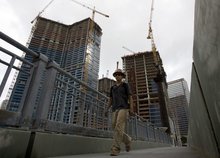
 Shared by Housing Is
on Apr 4, 2019
Shared by Housing Is
on Apr 4, 2019


 Shared by Housing Is
on Apr 4, 2019
Shared by Housing Is
on Apr 4, 2019

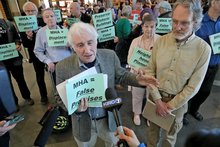
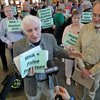
 Shared by Housing Is
on Mar 26, 2019
Shared by Housing Is
on Mar 26, 2019
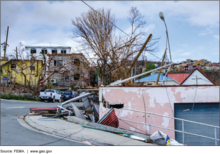
 Shared by Housing Is
on Mar 26, 2019
Shared by Housing Is
on Mar 26, 2019
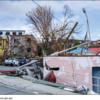
 Shared by Housing Is
on Mar 14, 2019
Shared by Housing Is
on Mar 14, 2019

 Shared by Housing Is
on Mar 11, 2019
Shared by Housing Is
on Mar 11, 2019

 Shared by Housing Is
on Mar 11, 2019
Shared by Housing Is
on Mar 11, 2019




 Shared by Housing Is
on Feb 28, 2019
Shared by Housing Is
on Feb 28, 2019
 Shared by Housing Is
on Feb 14, 2019
Shared by Housing Is
on Feb 14, 2019
 Shared by Housing Is
on Feb 14, 2019
Shared by Housing Is
on Feb 14, 2019
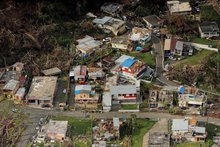
 Shared by Housing Is
on Feb 4, 2019
Shared by Housing Is
on Feb 4, 2019
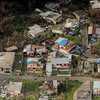
 Shared by Housing Is
on Jan 30, 2019
Shared by Housing Is
on Jan 30, 2019
 Shared by Housing Is
on Jan 24, 2019
Shared by Housing Is
on Jan 24, 2019
